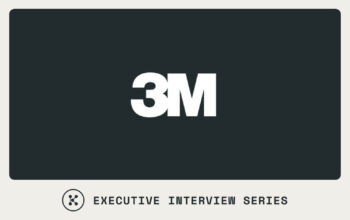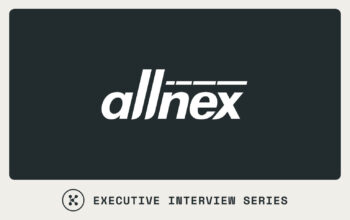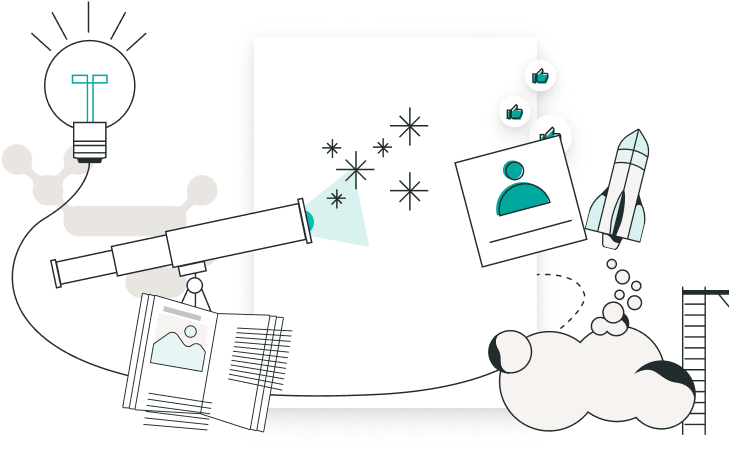Share
Top Considerations for a Chemical Website Customer Portal
Reading Time: 5 minutes
A well-designed customer portal can enhance customer experiences, increase efficiency and improve service. While portals have been most common in CPG brands, customers’ expectations from their B2C experiences are now challenging the chemical industry to provide tailored, personalized experiences. Here are the top considerations when designing or upgrading a customer portal, including the software you might need to build or license and the associated costs.
Customer Portal User Experience (UX)
The foundation of any successful portal is usability. Customers should navigate easily, accessing their information without friction. Since 40% of users abandon a site if it takes more than three seconds to load, designing for speed and mobile responsiveness is critical.
Personalization is also key. According to McKinsey, companies that excel at personalization generate 40% more revenue from these activities than those that don’t. By offering personalized dashboards and relevant content, businesses can significantly improve user satisfaction. Customers accessing your portal should be able to find all data related to the products they purchase from you in a highly searchable interface.
Security and Privacy
Customers trust your portal to handle sensitive information, making security a top priority. Features like two-factor authentication and role-based access ensure only authorized users can access sensitive data. A study by Varonis revealed that 53% of companies had over 1,000 sensitive files open to all employees. Not only does this endanger sensitive data and intellectual property, but it leaves you vulnerable to cyber attacks.
Additionally, compliance with privacy laws, such as GDPR or CCPA, is essential to protect customer data and avoid costly penalties.
Integration with Existing Systems
Internal teams can provide a better customer experience when they have access to comprehensive data related to that customer. Integration enables this.
Your portal should seamlessly integrate with existing tools like CRM and ERP systems to provide consistent, real-time updates. Advanced integrations enable features like real-time order tracking and transparent communication.
Knowde’s MDM platform maintains a single source of truth for product information, feeding data into eCommerce, ERP and CRM platforms.
Self-Service Features
Customers today expect self-service options that allow them to find solutions without needing to contact support. A knowledge base, order history and FAQ section can empower customers to resolve issues independently.
According to Zendesk, 69% of consumers try to resolve issues on their own before contacting support. However, only 14% of issues are fully resolved there (Gartner). Connecting self-service features with product and order data helps to fill this gap.
Offering multiple communication channels, such as live chat and email support, can provide an additional layer of convenience for customers.
Scalability and Flexibility
As your business grows, so should your customer portal. Scalability ensures the portal can handle increasing traffic without performance issues. Modular architecture allows you to add or remove features as needed. Cloud-based solutions, such as those from AWS, offer flexible infrastructure that scales with demand. Alternatively, you can opt for an all-in-one solution that scales for you with less heavy lifting for internal IT teams.
Advanced Analytics and Reporting
Portals should include analytics to track customer behaviors and system performance. These insights can help improve the portal’s functionality over time. Analytics-driven portals allow businesses to understand customer preferences and behaviors, leading to better product suggestions and increased sales.
Software Needed to Build a Customer Portal
Building a customer portal can be a significant undertaking. Here are the software components you’ll need:
1. Content Management System (CMS)
A CMS helps manage and organize the content displayed on the portal, including documents, user profiles and knowledge base articles. Commonly used CMS platforms include:
- Adobe Experience Cloud
- Drupal
- Optimizely One
- Progress Sitefinity
- Sitecore
Licensing costs for enterprise-level CMS solutions can range from $10,000 to $100,000 annually, depending on customization. Tools like Drupal can come in free versions, but the tradeoff is the amount of specialized development work needed to create what you want.
2. Customer Relationship Management (CRM)
CRM software like Salesforce or Microsoft Dynamics integrates with your portal to track customer interactions, manage accounts and provide personalized experiences. Salesforce CRM starts at $25 per user/month, but with extensive customizations, the price can quickly rise to $75-$300 per user/month (g2Crowd).
The pricing for these tools increases as you add modules. The customization needed to build a portal with these can become expensive quickly.
3. Product Information Management (PIM) or Master Data Management (MDM)
PIM or MDM helps maintain product data consistency across platforms and ensures accurate product information is displayed in the portal. For businesses managing a large volume of product data, a system like Knowde’s MDM platform is crucial.
Most PIM systems can cost anywhere between $50,000 and $250,000 annually, depending on the scale. Building your own PIM can cost upward of $1 million, and maintenance can average $400,000. (See our Buy vs. Build article for the math.)
4. eCommerce Platform
If the portal includes transactional functionality (e.g., placing orders), you’ll need an eCommerce platform like Shopify, Magento, or custom-built solutions. Shopify Plus, for example, starts at $2,300 per month, while custom solutions can cost significantly more.
Once you choose a platform, you still have to upload, extract from PDFs or scans, cleanse and harmonize your product, customer and vendor master data.
5. API Integration Tools
API management tools like MuleSoft, Zapier, or custom APIs are essential to enable seamless communication between your portal and other business systems (ERP, CRM, PIM). API integration tool costs vary, with platforms like MuleSoft costing around $6,000 annually for basic plans (ITQlick).
6. Cloud Hosting & Infrastructure
Your portal needs a reliable cloud infrastructure to support scalability, performance and uptime. Cloud hosting through AWS or Microsoft Azure typically costs between $100 and $1,000 per month, depending on traffic volume and required resources (CloudZero).
7. Security Software
Investing in security software is non-negotiable. Tools like Okta (for identity and access management) and specialized security suites can cost $1,500 to $5,000 annually for comprehensive protection, depending on anticipated users or traffic.
Cost of Building a Customer Portal
The cost of building a custom customer portal varies significantly based on your needs, but here’s a rough estimate:
- Basic Portal (using licensed software): $50,000 – $150,000 annually, which includes CMS, basic integrations, security and hosting.
- Mid-Level Portal (custom CMS, CRM and advanced analytics): $150,000 – $300,000 annually, with more extensive integrations and features like PIM and advanced customer service tools.
- Advanced Portal (custom-built with full integration): $500,000+, especially for portals requiring deep integration with ERP systems, custom eCommerce and advanced scalability features.
Choose a Portal That Grows with Your Business
Building an effective customer portal requires a balance of usability, security and scalability. It’s not just about software selection. It’s also about integration and long-term sustainability. Whether you build a custom solution or license best-in-class tools, understanding the software and associated costs will help you create a portal that meets customer expectations and grows with your business.
For businesses looking to enhance their customer experience through seamless digital solutions, Knowde offers a powerful Customer Experience Platform that is purpose-built for the chemical industry. From integrated product data management to personalized user interactions, Knowde’s platform ensures that your business can meet the growing demands of a digital-first world.
Learn how Knowde’s Customer Experience Platform can help you streamline operations, improve customer engagement, and scale effortlessly by visiting: Knowde Customer Experience Platform.




